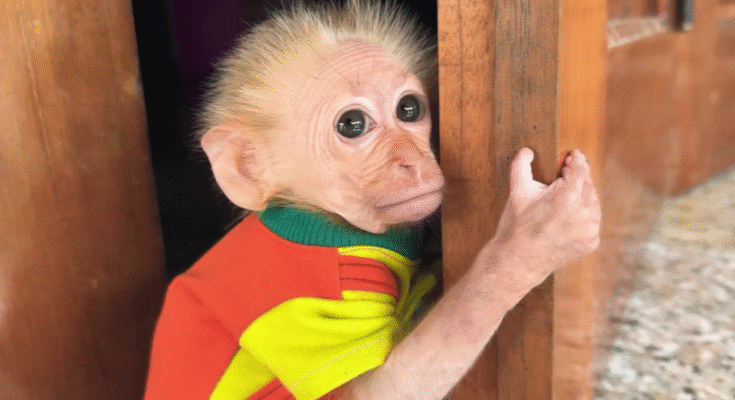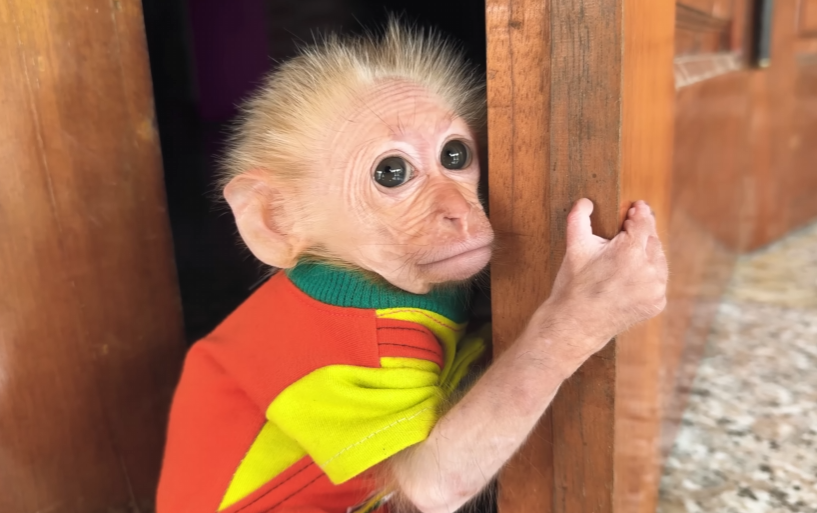
The sun had barely risen over the small Cambodian village, painting the horizon with strokes of gold and pale pink. The quiet morning was filled with the usual sounds—chirping birds, rustling leaves, and the distant hum of motorcycles on the dusty road. Yet, in a small alley behind the local market, a very different sound broke the morning calm: the pitiful cries of a baby monkey.
The little creature was no bigger than a kitten. Its fur, once soft and brown, was now matted with dust. Its tiny fingers clutched desperately at the bamboo bars of a crudely made cage. The baby’s big round eyes darted around, full of fear and confusion. Every few seconds, it let out a high-pitched whimper that sounded like a plea for help — “Please, let me go…”
Nearby, a group of children giggled, pointing at the monkey and tossing small bits of fruit through the bars. They meant no harm — to them, it was just a toy, something amusing to play with before school started. But the monkey’s cries weren’t playful. They were the sound of a little heart breaking.
The man who owned the cage sat on a wooden stool, sipping his morning coffee. He had found the monkey two days earlier near the edge of the forest. Its mother had been scared off by dogs, leaving her baby behind. Seeing an opportunity, the man scooped the little one up, thinking he could make some money by selling it to tourists.
To him, it was just business. But to the baby monkey, it was the end of everything familiar.
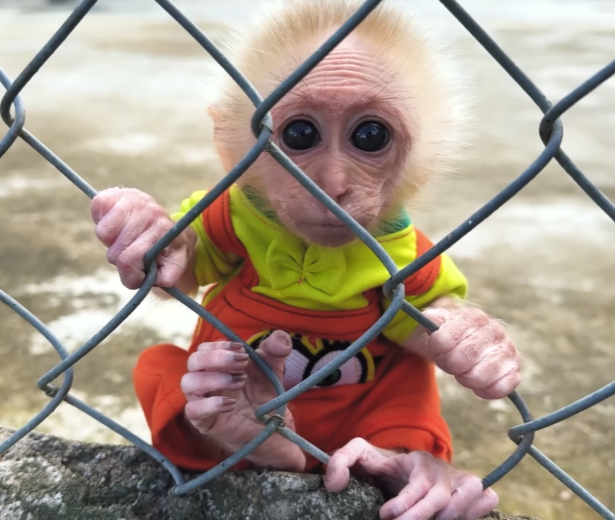
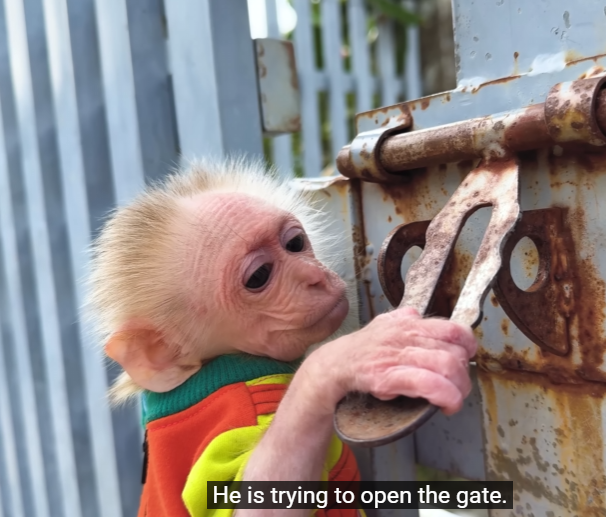
Every morning before dawn, the baby used to cling tightly to its mother’s chest, feeling her warmth and heartbeat as she leapt from tree to tree. Her gentle hands would groom his fur, and her soft coos were the only lullaby he knew. Now, the cage was cold, and the air smelled of smoke and fish from the market. The monkey’s small heart beat rapidly, frightened of every sudden sound.
Then came a soft voice — a young girl named Lina. She was around ten years old, with a gentle heart and a deep love for animals. Her family lived nearby, and every morning she passed through the market on her way to school. That day, she stopped when she heard the cries.
“Uncle, whose monkey is that?” she asked, her eyes full of concern.
The man shrugged. “Mine now. Found it in the forest. Cute, huh? I’ll sell it to someone who wants a pet.”
Lina frowned. She crouched near the cage, meeting the baby’s frightened eyes. “He looks scared. Where’s his mom?”
“Gone,” the man said flatly. “You want to buy it?”
Lina shook her head, her heart aching. She reached a finger through the cage, and the baby monkey immediately clung to it, trembling. That tiny touch — so fragile yet full of trust — made tears well in her eyes.
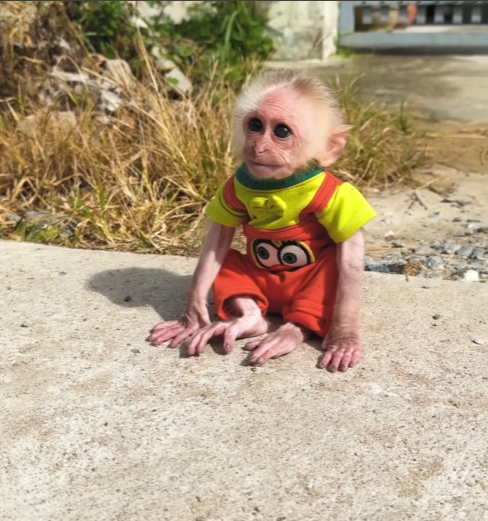
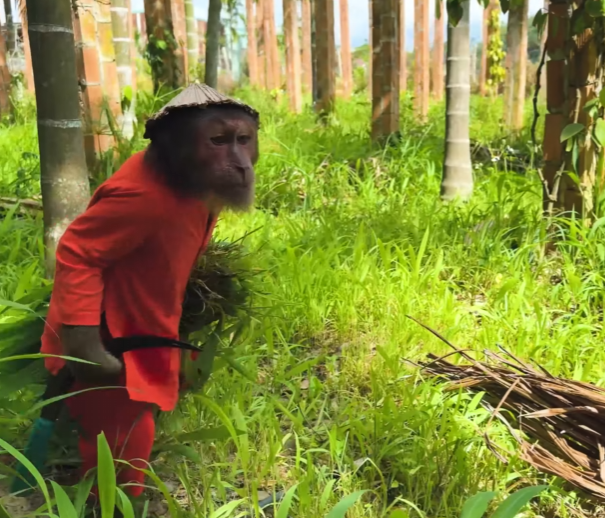
“Uncle, please… let the baby monkey go,” she whispered. “He needs his mom. He’s just a baby.”
The man laughed. “Little girl, you think life is that simple? If I let it go, someone else will just catch it again. Or maybe a dog will eat it. Better it stays with me.”
But Lina couldn’t accept that. All day at school, she couldn’t concentrate. Her mind kept replaying the image of the baby monkey, alone and afraid, pressing its tiny face against the bamboo bars. That night, she told her father about what she’d seen.
Her father listened quietly, sighing. “I know that man,” he said. “He doesn’t mean harm, but he doesn’t understand either. Maybe tomorrow we can go talk to him.”
The next morning, father and daughter went back to the market. The monkey was still there, curled up in the corner of its cage, too tired to cry anymore. When Lina approached, it weakly lifted its head, as if recognizing her.
Her father spoke calmly to the man. “Brother, the forest is not far. If you keep the monkey, it will only suffer. You can’t sell it easily — it’s illegal. Let’s take it back to the forest. The mother might still be nearby.”
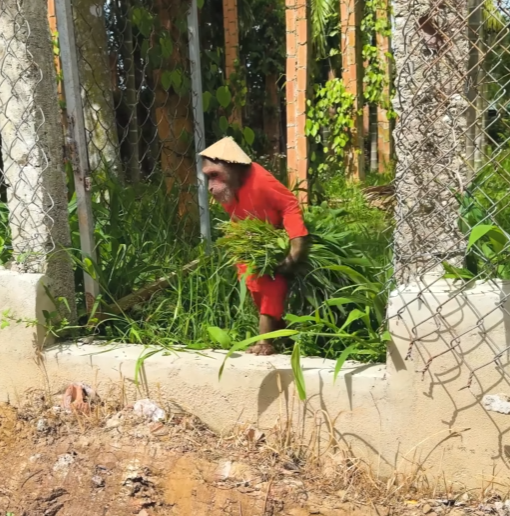
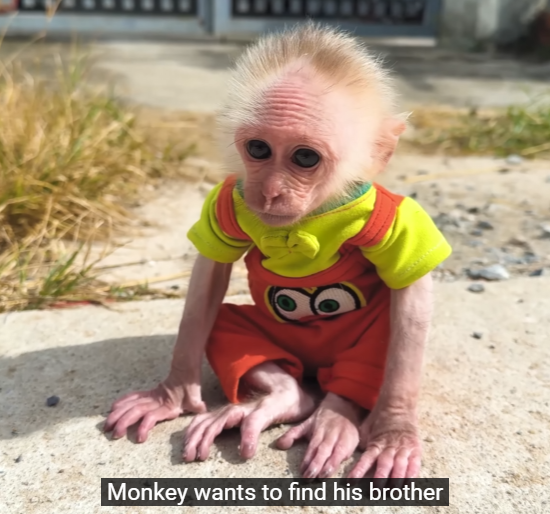
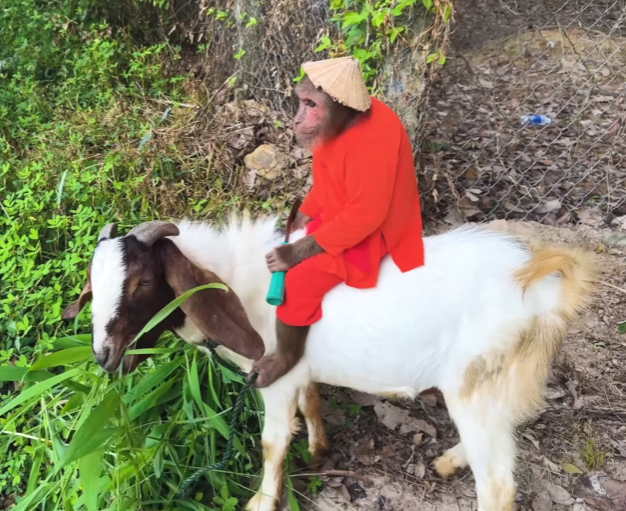
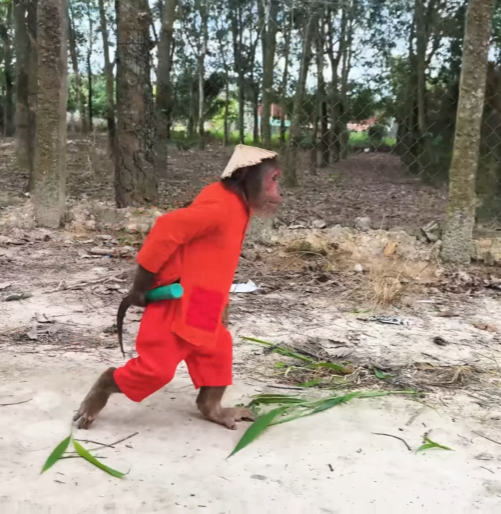
The man hesitated. “But I caught it. It’s mine now.”
Lina’s father reached into his pocket and pulled out a few small bills. “Here, take this. It’s not much, but it’s enough for coffee and breakfast. Let the baby go free.”
The man looked from the money to the monkey. For a long moment, he said nothing. Then finally, he sighed. “Fine. Take it. But it’s your problem now.”
Lina’s heart leapt. She hurried to the cage, opening it slowly. The baby monkey didn’t move at first — it had been trapped for days and wasn’t sure if this was real. Then, when she whispered softly, “You’re safe now,” it hesitated for just a second before leaping into her arms.
She felt the tiny body cling to her chest, its heartbeat racing against hers. She smiled through tears. “Don’t worry, little one. We’ll take you home.”
The three of them walked together toward the edge of the forest. The air grew cooler and fresher as they stepped beneath the trees. Birds sang overhead, and the sounds of the market faded behind them.
When they reached a clearing, Lina gently placed the baby monkey on the ground. It looked around nervously, unsure what to do. Then, from somewhere high in the trees, came a familiar sound — a low, urgent cry.
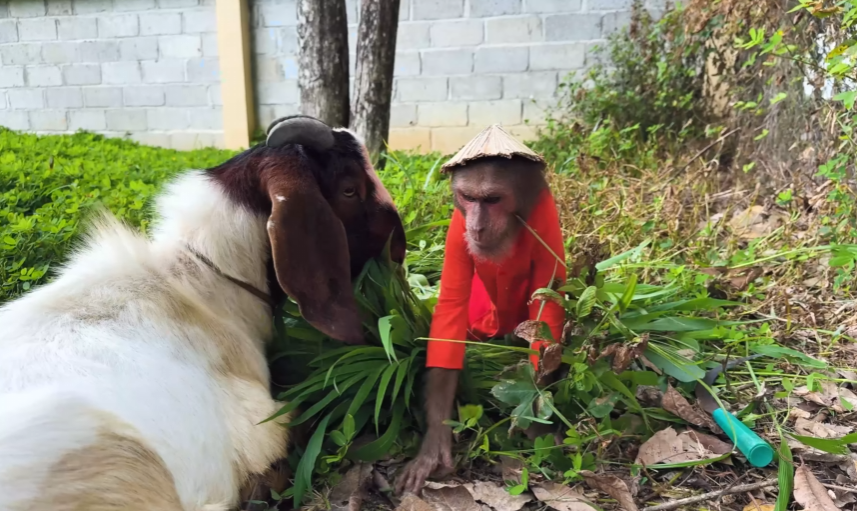
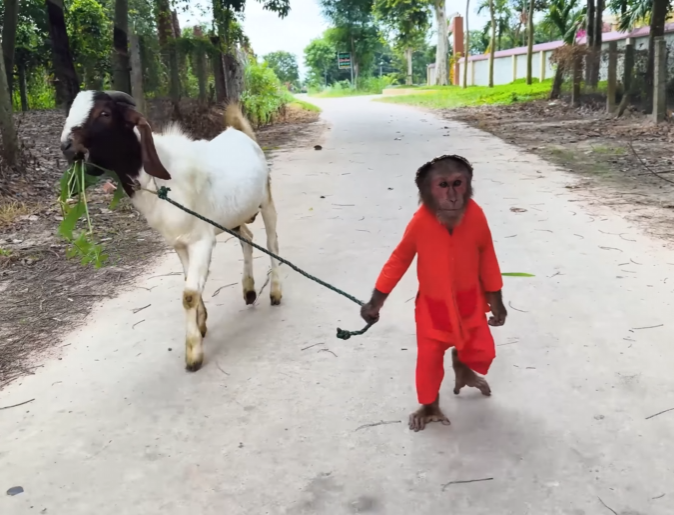
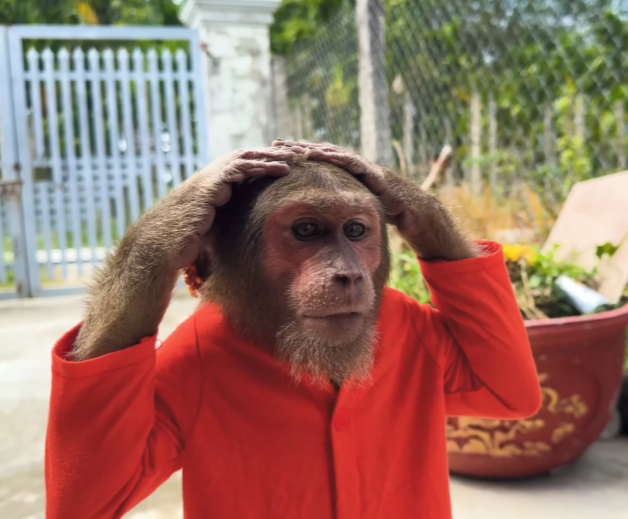
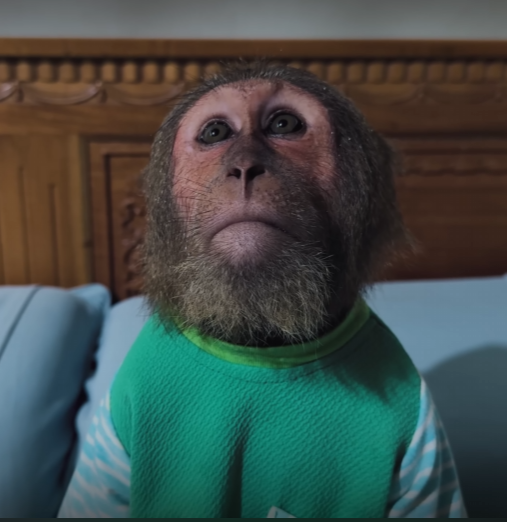
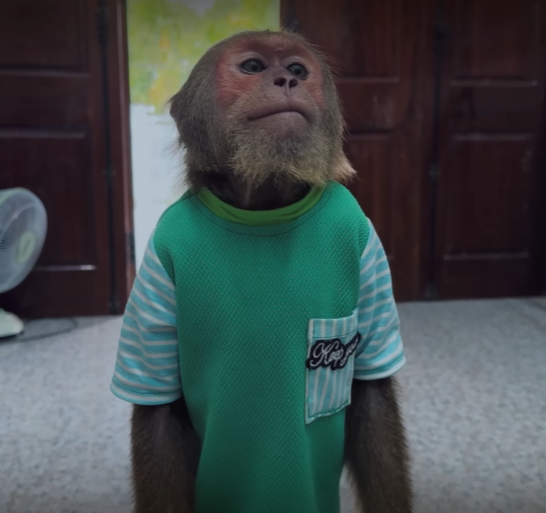
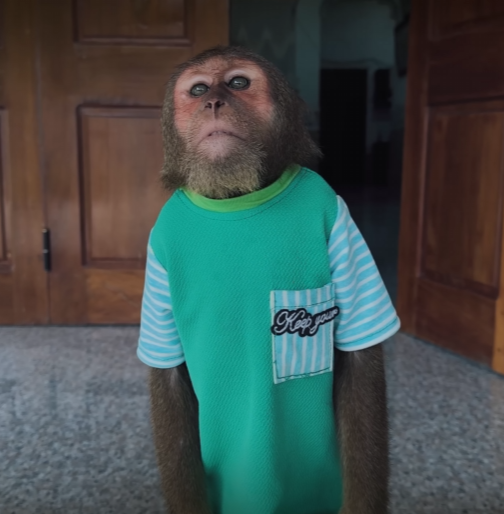
The baby’s ears perked up. It froze, then squealed in excitement. The cry came again, closer this time. And then she appeared — the mother monkey, her fur slightly ruffled, eyes wide with shock and joy.
The reunion was pure emotion. The baby ran clumsily toward her, letting out a stream of cries that were half sob, half laughter. The mother scooped her little one up, hugging him tightly to her chest, rocking him back and forth. The forest seemed to breathe again, alive with warmth and love.
Lina watched with tears streaming down her face. “Goodbye, little one,” she whispered. “Be free, and stay safe.”
Her father put a hand on her shoulder. “You did a good thing today. Sometimes kindness is small, but it changes everything.”
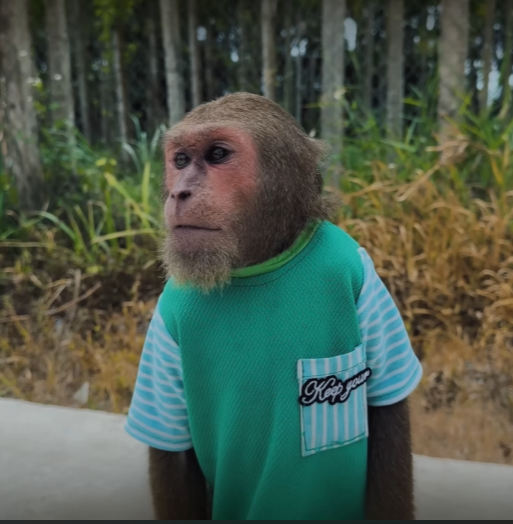
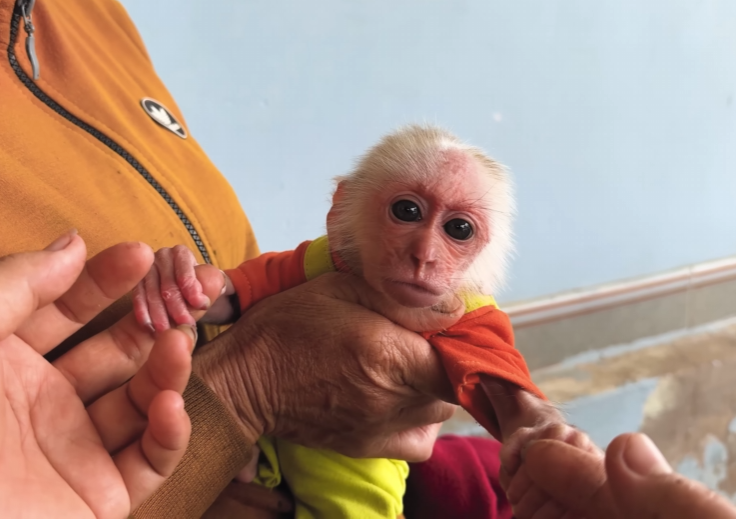
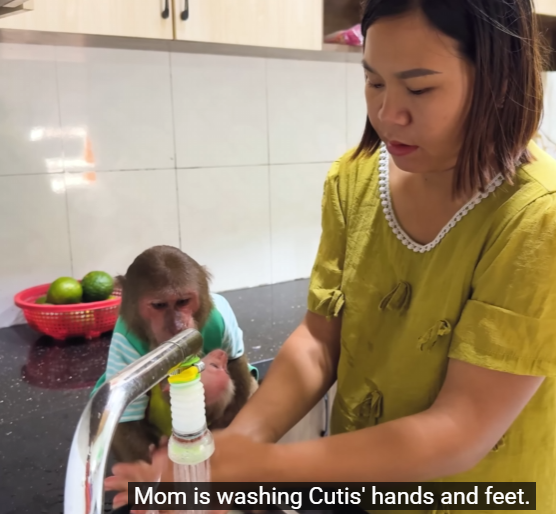
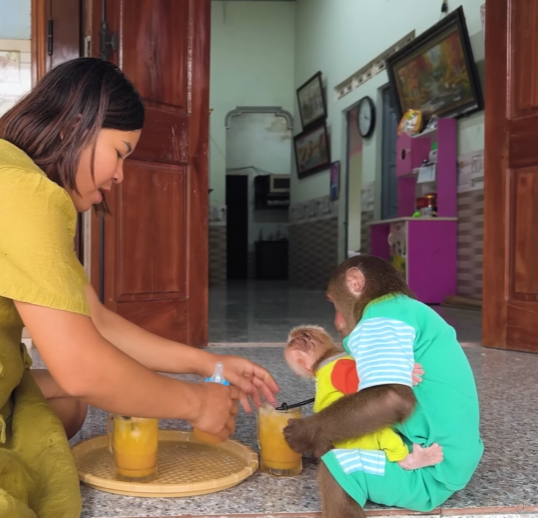
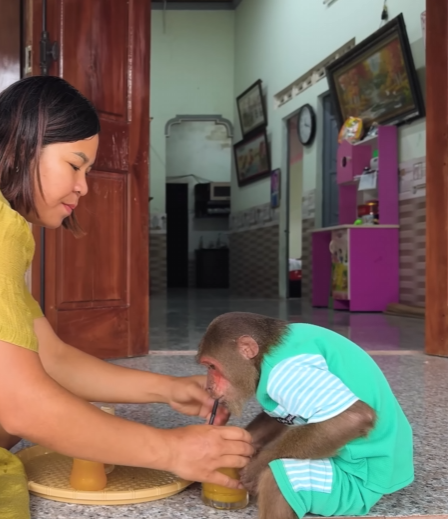
As they turned to go, Lina looked back one last time. The mother monkey was climbing a tall tree, her baby safely in her arms. For a moment, she paused, looking down at the humans below. Her eyes met Lina’s, as if saying thank you. Then, with a swift leap, she vanished into the green canopy.
Back in the village, word spread quickly about what Lina had done. Some people laughed, saying it was just a monkey. But others nodded thoughtfully, realizing that compassion isn’t about the size of the creature—it’s about the size of the heart that shows it.
From that day on, whenever Lina passed the market, she’d glance at the empty spot where the cage once sat. It made her smile every time. Somewhere out there, a baby monkey was free again, swinging through the trees with its mother—because one little girl had dared to say, “Please, let Baby Monkey go.”
And in that simple plea, she reminded everyone that mercy still exists in this world — not just in words, but in the gentle actions that make life a little kinder for every living soul.
